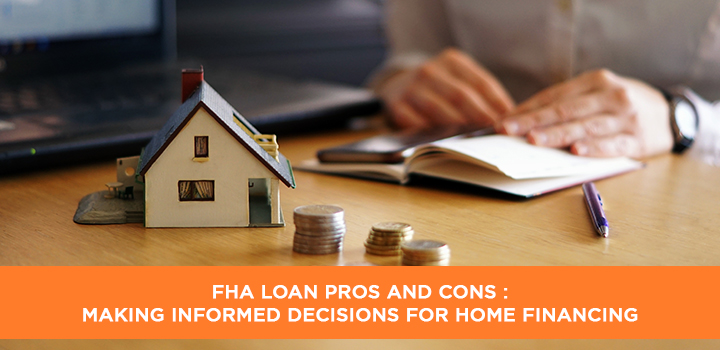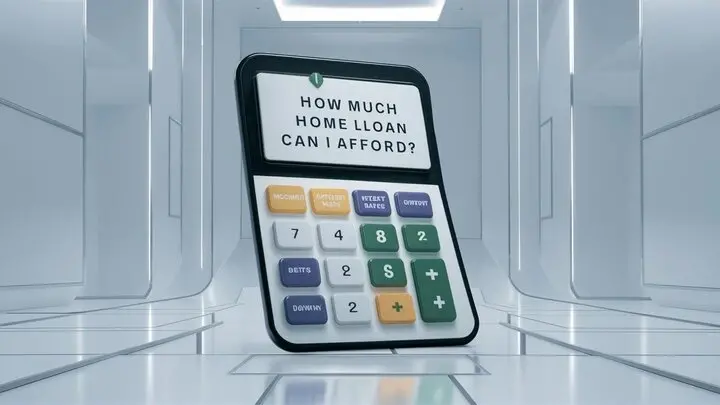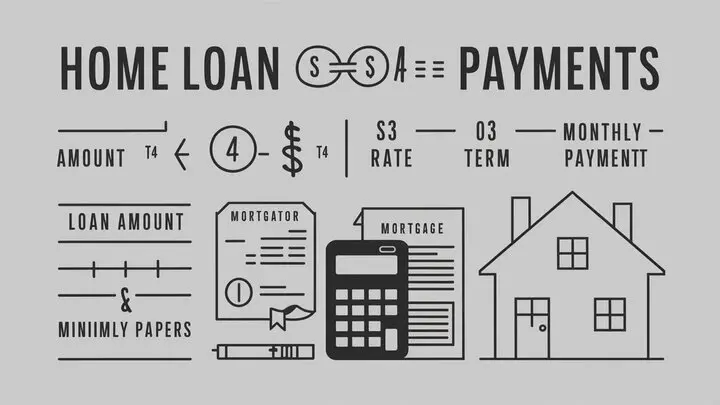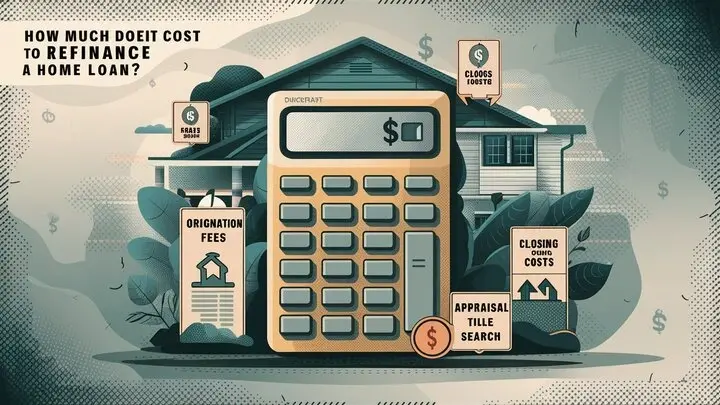-
Posted on: 26 May 2023

-
Buying a home is a significant milestone, and navigating the world of mortgages can be overwhelming. One popular option, particularly for first-time homebuyers, is the FHA loan. Backed by the Federal Housing Administration (FHA), these loans offer attractive features like lower down payment requirements and more lenient credit score criteria. However, they also come with certain drawbacks. This comprehensive guide will delve into the pros and cons of FHA loans, empowering you to make an informed decision about whether this type of financing is the right fit for your needs.
What is an FHA Loan?
An FHA loan is a mortgage insured by the Federal Housing Administration. This insurance protects lenders in case the borrower defaults on the loan. Because the lender faces less risk, they are often willing to offer more favorable terms to borrowers, such as lower down payments and easier credit score requirements compared to conventional mortgages. FHA loans are available for purchasing single-family homes, townhouses, condominiums, and even manufactured homes.
Who is an FHA Loan For?
FHA loans are particularly well-suited for:
- First-time homebuyers: The lower down payment requirements make homeownership more accessible.
- Borrowers with less-than-perfect credit: FHA loans often have more flexible credit score requirements than conventional loans.
- Borrowers with limited savings: The smaller down payment allows borrowers to conserve their savings for other expenses.
The Pros of FHA Loans
Let's examine the advantages of choosing an FHA loan for your home financing:
1. Lower Down Payment Requirements
One of the most significant benefits of FHA loans is the low down payment requirement. In most cases, you can qualify for an FHA loan with a down payment as low as 3.5% of the purchase price. This is significantly lower than the typical 20% down payment required for many conventional loans. This smaller upfront investment makes homeownership attainable for a larger pool of buyers.
Example: On a $300,000 home, a 3.5% down payment would be $10,500, compared to $60,000 for a 20% down payment.
2. More Lenient Credit Score Requirements
FHA loans are generally more forgiving when it comes to credit scores. While the specific requirements can vary depending on the lender, you may be able to qualify for an FHA loan with a credit score as low as 500. However, if your credit score is between 500 and 579, you'll likely need to make a larger down payment of 10%. Borrowers with credit scores of 580 or higher typically qualify for the 3.5% down payment.
This makes FHA loans an excellent option for individuals who have experienced credit challenges in the past or who haven't had the opportunity to build a long credit history.
3. Easier Qualification Requirements
In addition to more flexible credit score requirements, FHA loans often have more lenient income and debt-to-income (DTI) ratio requirements compared to conventional loans. Lenders are more willing to work with borrowers who have a higher DTI, which is the percentage of your gross monthly income that goes towards debt payments. This can be beneficial for individuals who have a significant amount of debt, such as student loans or credit card debt.
4. Government Backing and Stability
Because FHA loans are insured by the government, they offer a level of stability and security that other loan types may not. This backing encourages lenders to offer these loans even during economic uncertainty, ensuring that borrowers have access to affordable financing options.
5. Assumability
Some FHA loans are assumable, meaning that another qualified buyer can take over your existing mortgage. This can be a valuable benefit if you need to sell your home in the future, especially if interest rates have risen since you obtained the loan. The new buyer can essentially inherit your lower interest rate, making your home more attractive to potential buyers.
The Cons of FHA Loans
While FHA loans offer numerous advantages, it's crucial to be aware of their potential drawbacks:
1. Mortgage Insurance Premiums (MIP)
One of the most significant downsides of FHA loans is the requirement for mortgage insurance. There are two types of mortgage insurance premiums (MIP) associated with FHA loans:
- Upfront Mortgage Insurance Premium (UFMIP): This is a one-time fee paid at closing, typically 1.75% of the loan amount.
- Annual Mortgage Insurance Premium (Annual MIP): This is an ongoing premium paid monthly as part of your mortgage payment. The annual MIP rate varies depending on the loan amount, loan term, and loan-to-value (LTV) ratio. For most FHA loans originated today, the annual MIP is required for the life of the loan, regardless of how much equity you build in your home.
This ongoing mortgage insurance can significantly increase the overall cost of your loan, especially over the long term.
Example: On a $300,000 loan, the UFMIP would be $5,250. The annual MIP could add hundreds of dollars to your monthly mortgage payment.
2. Loan Limits
FHA loans have loan limits, which are the maximum loan amounts that the FHA will insure. These limits vary by county and are based on median home prices. In high-cost areas, the loan limits may not be sufficient to purchase the home you want, forcing you to consider other financing options.
You can find the FHA loan limits for your county on the Department of Housing and Urban Development (HUD) website.
3. Property Requirements
FHA loans have specific property requirements that the home must meet to be eligible for financing. These requirements are designed to ensure the safety and soundness of the property and protect the borrower. The property must be appraised by an FHA-approved appraiser and meet certain standards for habitability, safety, and structural integrity. This can sometimes lead to delays or complications if repairs are needed to bring the property up to FHA standards.
4. Potentially Higher Interest Rates
While FHA loans are designed to be affordable, their interest rates might sometimes be slightly higher than those of conventional loans, especially for borrowers with excellent credit. This is because the lender is taking on less risk due to the FHA insurance, but the additional costs associated with MIP can still make the overall cost higher.
5. Can't Eliminate Mortgage Insurance Easily
As mentioned previously, the annual MIP for most FHA loans originated today is required for the life of the loan. Unlike conventional loans, where you can typically eliminate private mortgage insurance (PMI) once you reach 20% equity in your home, you're generally stuck paying MIP for the entire loan term. The primary way to eliminate it is to refinance into a conventional loan once you meet the lender's requirements.
Making an Informed Decision: Is an FHA Loan Right for You?
Deciding whether an FHA loan is the right choice for you depends on your individual circumstances and financial goals. Consider the following factors:
- Your credit score: If you have a lower credit score, an FHA loan may be your best option.
- Your down payment savings: If you have limited savings, the lower down payment requirement of an FHA loan can be a significant advantage.
- Your debt-to-income ratio: If you have a higher DTI, an FHA loan may be more forgiving.
- Your long-term financial goals: Factor in the cost of mortgage insurance over the life of the loan and compare it to other financing options.
- The type of property you want to buy: Make sure the property you're interested in meets FHA requirements and that the loan amount is within the FHA loan limits for your area.
It's always a good idea to shop around and compare loan offers from different lenders. Talk to a mortgage professional to discuss your specific situation and determine the best financing option for your needs. Consider exploring conventional loans, USDA loans, and VA loans to understand all your options.
Alternative Loan Options to Consider:
- Conventional Loans: Require higher credit scores and down payments but allow you to eliminate PMI once you reach 20% equity.
- USDA Loans: Available for rural and suburban homebuyers, often with no down payment required.
- VA Loans: Available for veterans, active-duty military personnel, and eligible surviving spouses, often with no down payment required.








